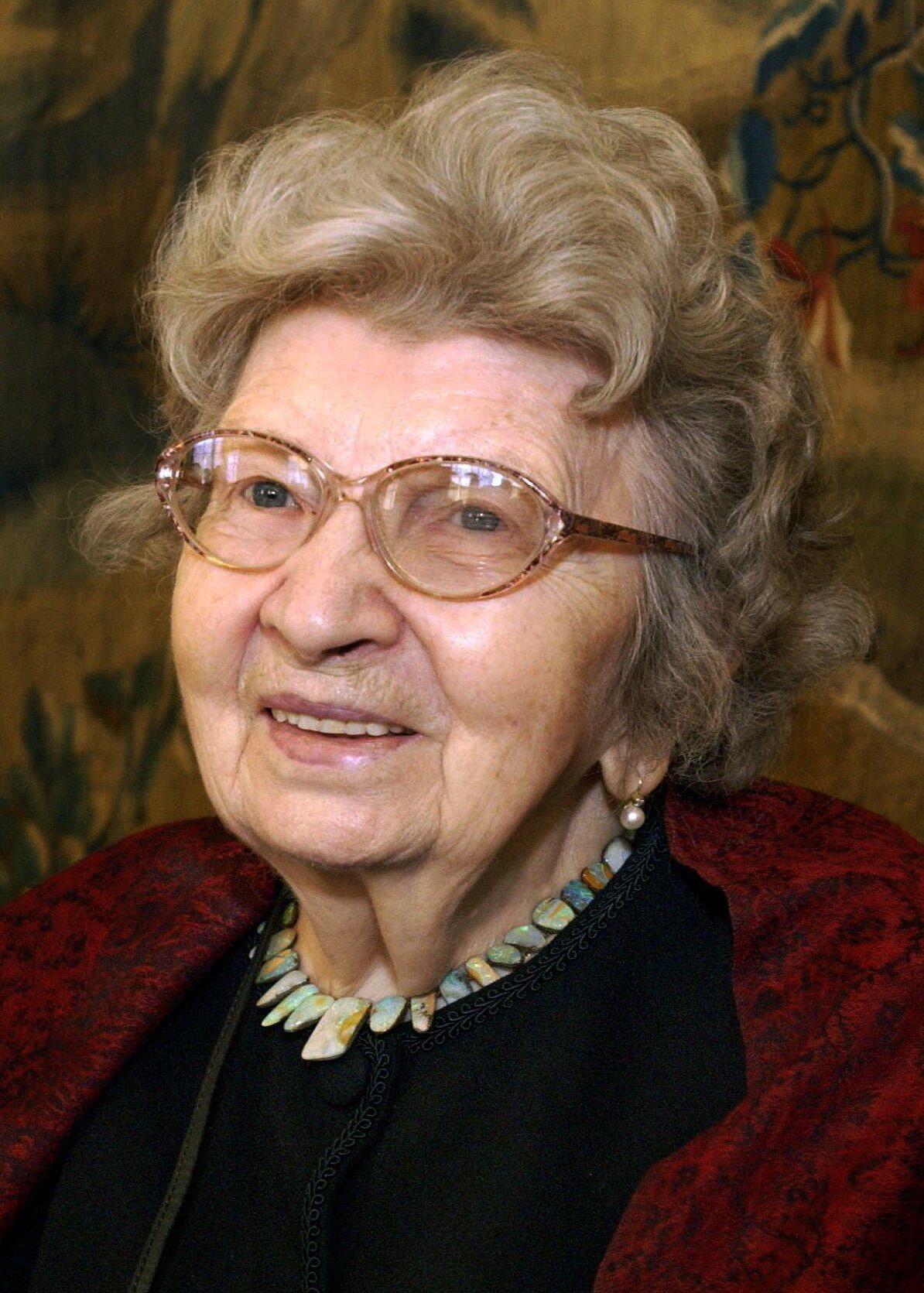Annemarie Schimmel first to teach Indo-Muslim culture
Area studies to Islamic studies 1967
Annemarie Schimmel First to Teach Indo-Muslim Culture
Annemarie Schimmel was born in 1922 in Erfurt, Germany. She was introduced to the divan of Jalaluddin Rumi as a student at the University of Berlin and began a lifelong journey of scholarship in the Islamic mystical tradition. After earning her first doctorate in 1941 at the age of 19 and a second in 1951, she became History of Religion chair at Ankara University in Turkey. In 1967, Professor Schimmel accepted Wilfred Cantwell Smith’s invitation to come from Bonn to Harvard as its first Lecturer on Indo-Muslim Culture, a position funded by the bequest of the Afghan inventor of Minute Rice and lover of Urdu poetry, Ataullah Ozai-Durrani. In 1970, Professor Schimmel became the fourth woman granted tenure in the Faculty of Arts and Sciences. Her courses included “Islamic Calligraphy," "Ghalib's Persian Poetry in the Context of the Indian Style," and “Maulana Rumi and his Influence on East and West.” Among her publications are Gabriel's Wing (1963), My Soul is a Woman: The Feminine in Islam (1997), and Empire of the Great Mughals: History, Art, and Culture (2004). Her notable students include Ali Asani, Harvard’s current Professor of Indo-Muslim Culture, and Wheeler Thackston, Professor of the Practice of Persian Emeritus.
Transcript
First Class with Annemarie Schimmel
Ali Asani
I think it was during my sophomore year that I actually ended up meeting Annemarie Schimmel. And this was by total coincidence, she was only here in the spring. So I was looking for a course to take and there was a course called "Introduction to Islamic Literatures," and so I decided to go to shop the course, as they put it, to see what it was like. And so the room actually that was assigned to it was actually her office, because she wasn't expecting a lot of students to take this course. So she had opted to offer it in her office. And as it turned out, I was the only student. And so I remember the first class, I went in, and I said, "Is this for the course that's being taught?" She said yes, and then I sat down. And then exactly like 10 minutes past the hour, because that's when the classes officially started, you didn't start on the hour, you waited for people, so 10 minutes past the hour, she just closed her eyes, and she started. And she was behind her desk, and I was there trying to figure out, what am I supposed to do? I started taking notes. She would have names and places that I had no idea where they were, I would just write the names out the best I could. And then exactly on the hour at 12 o'clock, she stopped and she opened her eyes, and then she said, "Any questions?" and I was flabbergasted, you know. So I asked her. I think there were some spellings that I wanted, she had put some names. So she gave me the proper spelling and then she said, "Great, I'll see you next week." And I started, I left the office, and then I realized I didn't know anything about the requirements, the syllabus or anything. So I went back to her and I said, you know, 'What about these?" She said, "Oh, I don't worry about those things. I'll just give you some books to read. You can read them, and then you write a paper at the end." And that's how I encountered Annemarie Schimmel, who, at that point, I had no idea who she was. I was just fascinated with the way she just closed her eyes and she just talked and read out all these names. I said, "Wow, this person is so learned." It's only later that I found out what a wonderful scholar she was in, not only in Arabic, in Persian, in Turkish, in Urdu, and all these kinds of literatures, but also her interest in mysticism. So I continued taking courses with her while at the same time, continuing my Arabic and work in religion. But I think she really introduced me to the notion of how one can study a religion and the culture of a people through their literature and what insights literature can provide, especially poetry can provide, into things. She was very much into this idea that you can learn more about the culture of a people through their literature than their political histories, she always used to [say], "their miserable political history." So if you really wanted to get an essence of what a people were like or a cultural was like, you did it through their literature and then, it turned out also, through the arts, because she was into calligraphy and things like that.

